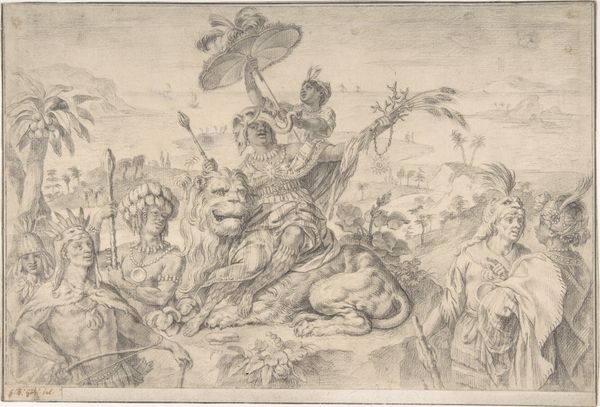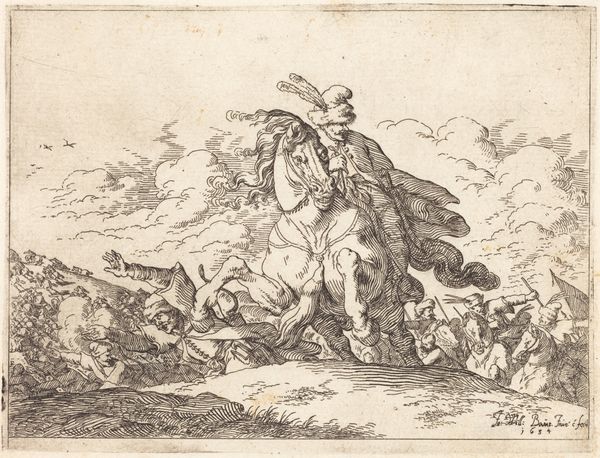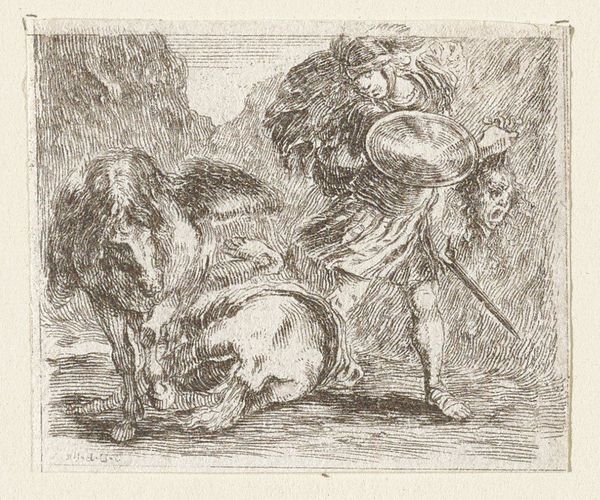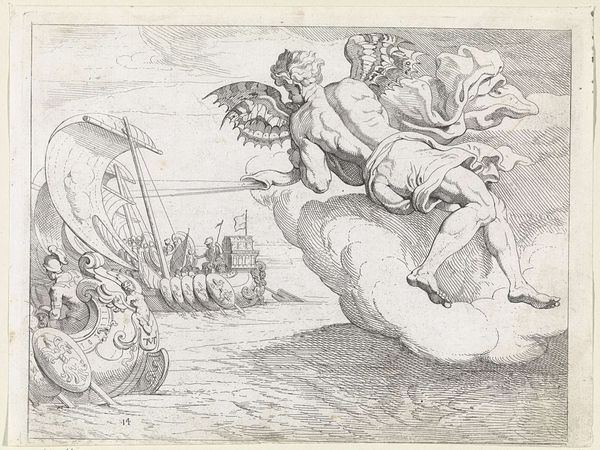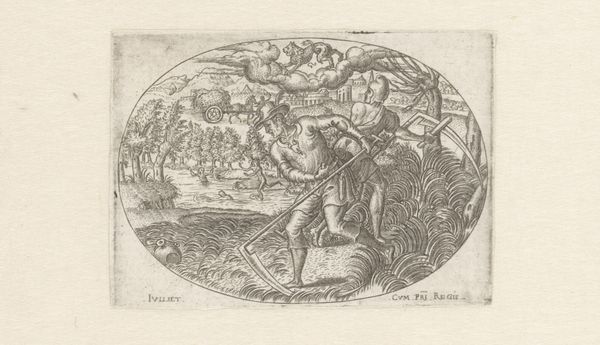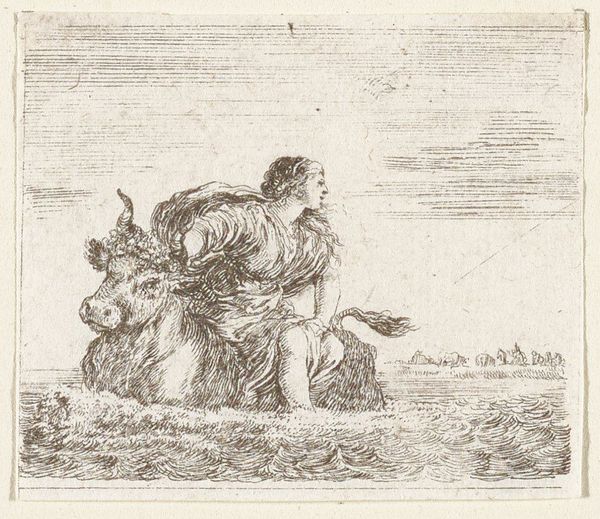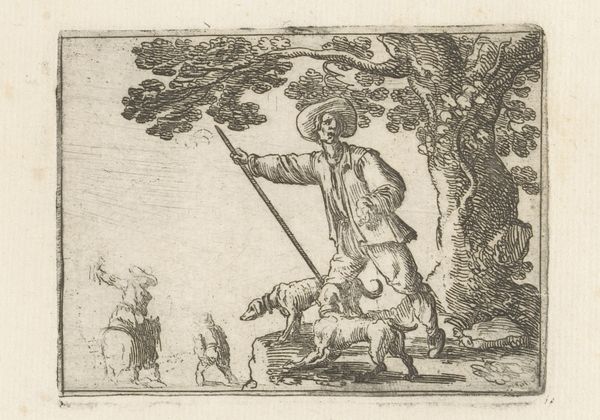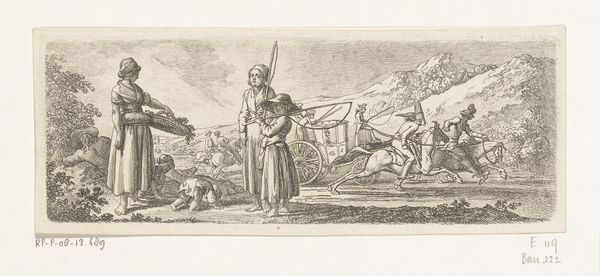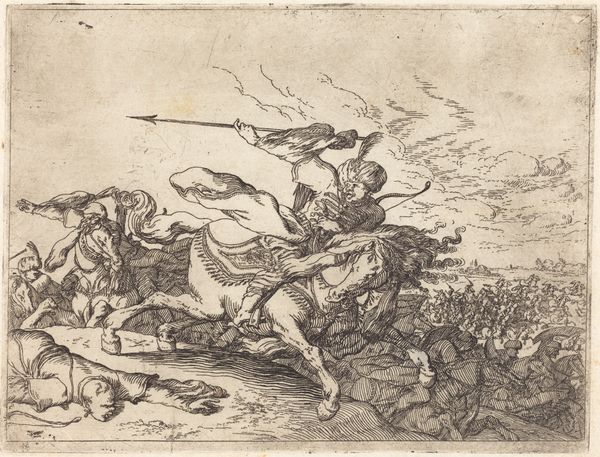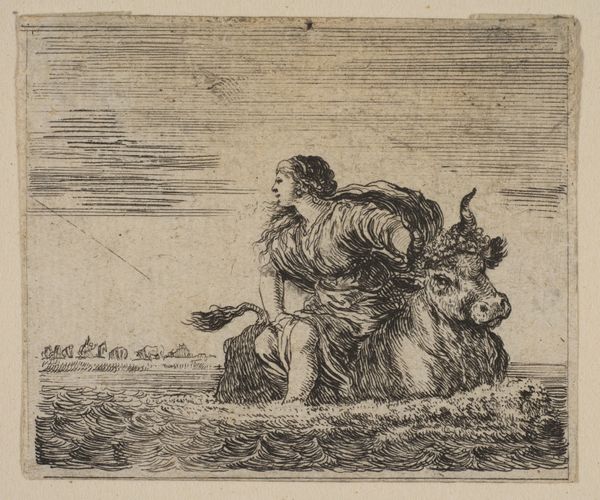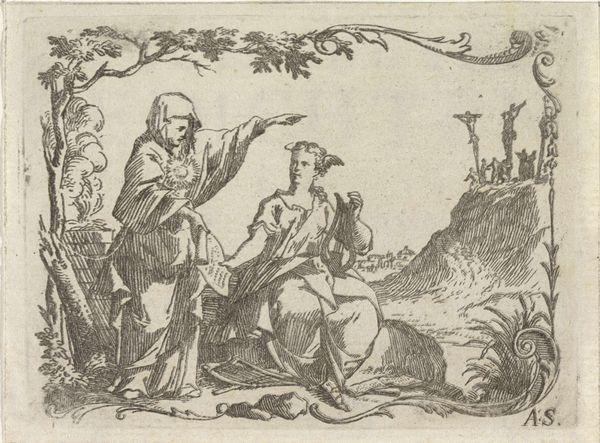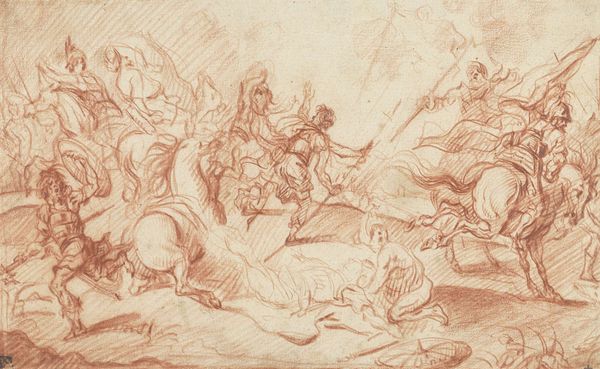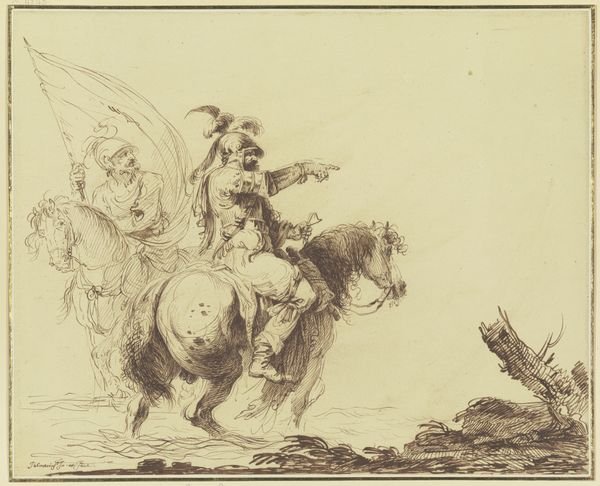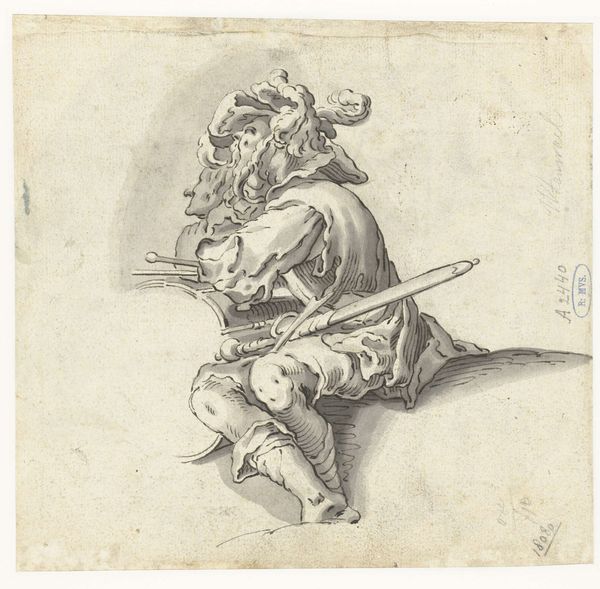
drawing, ink
#
drawing
#
baroque
#
pen sketch
#
figuration
#
ink
#
pen work
#
genre-painting
Dimensions: height 51 mm, width 65 mm
Copyright: Rijks Museum: Open Domain
Cornelis Schut made this tiny drawing, "Putto aan de waterkant," using pen and ink sometime in the 17th century. The image is created using linear strokes, varying in pressure and direction to model forms and convey the illusion of depth. Looking closely, you can see how the ink bleeds slightly into the paper, creating a soft texture that contrasts with the crispness of the lines. This effect is characteristic of ink drawings on absorbent paper, which was commonly used at the time. The controlled application of ink reflects the artist's skill in handling the medium. Drawings like this one were not only artistic endeavors, but also served practical purposes in the workshop. They might have been studies for larger paintings or prints, or presented to patrons as gifts. The labor and skill involved in producing them was a valuable commodity. By focusing on the materials, techniques, and social context of this drawing, we can gain a deeper appreciation for its historical significance.
Comments
No comments
Be the first to comment and join the conversation on the ultimate creative platform.
